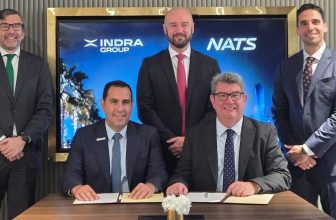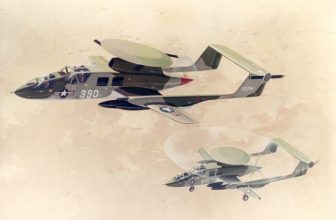In aerospace manufacturing, precision and predictability are paramount. Every part, from the largest fuselage panel to the smallest stringer, must maintain its shape, tolerances, and structural integrity through machining, forming, and assembly. One often-overlooked factor in achieving this precision is the internal condition of the material itself – specifically, the residual stress present after production.
This is where Minimum Residual Stress (MRS) materials come into play.
MRS products, often flat-rolled aluminum plate or sheet, are engineered and processed to reduce internal stresses that can lead to distortion or warping during downstream machining. In the aerospace industry, where even minor dimensional deviations can translate into significant cost and schedule impacts, MRS materials have become a vital part of the supply chain for critical components.
What Is Residual Stress?
Residual stress refers to the internal, self-equilibrating stresses that remain in a material after it has been manufactured or processed. These stresses exist even in the absence of external forces or loads.
Residual stress can arise from a variety of processes, including:
- Hot and cold rolling
- Heat treatment and quenching
- Extrusion and forming
- Welding and joining
- Machining and grinding
During these operations, different parts of the material experience variations in temperature, deformation, or cooling rate. When the material returns to equilibrium, these variations lock in stress patterns within the metal.
In some cases, residual stress can be beneficial, such as surface compressive stresses that improve fatigue resistance. But in aerospace applications, uncontrolled residual stresses are typically undesirable because they can lead to warping, dimensional instability, or unexpected distortion when the material is machined or chemically milled.
[Why Residual Stress Matters in Aerospace Manufacturing
Aerospace components often start as large aluminum plates, extrusions, or rolled sheets that are machined into highly precise, lightweight structures. These parts—such as wing skins, fuselage frames, stringers, and bulkheads, require the removal of significant amounts of material from one side.
If the starting material contains residual stresses, machining can disrupt that internal balance. When one side is milled down more than the other, the stress field becomes asymmetric, causing the material to bend, twist, or “potato-chip” as it relaxes.
The result is not just an inconvenience—it can mean:
- Scrapped parts
- Excessive re-working or re-machining
- Dimensional non-conformance
- Delays in assembly
- Increased production costs
These issues are particularly problematic when tolerances are measured in thousandths of an inch, and part flatness or alignment affects overall aerodynamic performance.
The MRS Solution: Engineering Out Distortion
To address this challenge, material producers developed Minimum Residual Stress (MRS) products: flat-rolled metals that undergo specialized processes to minimize internal stress levels.
The MRS designation refers to material that has been thermomechanically processed, stretched, or stress-relieved to achieve a stable internal structure. This stability allows the material to retain its shape even after substantial amounts of stock are removed from one side.
Common methods to produce MRS materials include:
- Stretching or tension leveling: Applying controlled tension across the width and length of the plate to relieve stresses.
- Thermal stress-relief treatments: Heating and cooling cycles designed to allow internal strains to relax.
- Balanced rolling and quenching techniques: Uniform mechanical and thermal treatment to prevent uneven stress distribution.
The result is material with exceptionally low residual stress gradients that is verified by both mechanical and dimensional testing and that remains flat and stable during machining.
Benefits of MRS Materials in Aerospace Applications
- Improved Machining Stability
MRS aluminum plate and sheet maintain flatness and dimensional stability even after deep pocketing or asymmetric milling. This reduces part distortion, allowing tighter tolerances and more consistent outcomes.
- Higher Yields and Lower Scrap Rates
By minimizing the risk of warping and reworking, MRS materials help manufacturers achieve higher yields and reduce the number of parts that must be scrapped or re-machined due to distortion.
- Lower Overall Production Cost
Although MRS plate can carry a premium price compared to standard rolled material, the total cost of ownership is often lower. Savings come from reduced machining time, fewer rejects, and less downtime for part requalification.
- Enhanced Process Predictability
Engineers and machinists can rely on MRS materials to perform consistently from batch to batch, reducing the variability that can complicate precision aerospace machining and assembly.
- Compatibility with Modern Alloys and Tempers
MRS technology is available in aerospace-grade alloys such as 2024, 7075, and 7050, and in tempers that meet or exceed industry standards (e.g., AMS, ASTM, and OEM specifications).
Applications: Where MRS Materials Make the Difference
MRS aluminum plate and sheet are used extensively in airframe and structural components where machining-induced distortion could compromise form and function. Typical applications include:
- Wing skins and spars
- Fuselage frames and bulkheads
- Stringers, stiffeners, and ribs
- Landing gear components
- Satellite panels and space structures
In each case, the precision and stability offered by MRS materials directly support performance, safety, and manufacturability.
For suppliers specializing in roll form stringers and extrusions, MRS feedstock ensures that profiles maintain consistent geometry and surface flatness during forming and post-machining operations—key to meeting tight dimensional and aerodynamic requirements.
How MRS Supports Modern Aerospace Design Trends
Today’s aerospace designs emphasize lightweighting, fuel efficiency, and precision assembly. To achieve these goals, manufacturers are pushing materials and machining to new limits, removing more mass from each component while maintaining structural integrity.
This trend magnifies the impact of residual stress. The more material you remove, the more opportunity there is for stress imbalance to express itself as distortion.
Using MRS plate or extrusion stock helps designers and fabricators push these boundaries safely. It supports advanced manufacturing techniques like high-speed machining, 5-axis milling, and chemical milling without compromising dimensional stability.
AAA Air Support: Partnering for Precision
As an aerospace materials supplier, our role is not only to deliver certified aluminum extrusions and roll form stringers, but also to ensure our customers receive the most stable, predictable material possible for their precision operations.
By sourcing and supplying Minimum Residual Stress (MRS) materials from qualified mills, we help manufacturers reduce production risk, improve throughput, and maintain the structural accuracy that defines modern flight.
In aerospace, precision starts long before the first chip is cut – it begins with the right material, engineered for stability. Whether you’re sourcing roll form stringers for structural repairs or responding to an urgent AOG event, the right support partner will deliver speed, quality, and precision every time.
At AAA Air Support, we specialize in helping aerospace maintenance and manufacturing teams stay ready, responsive, and fully equipped. With a comprehensive inventory of aerospace-grade aluminum, stainless steel, and titanium roll form stringers—and 24/7 AOG support—we’re ready to serve your operation whenever and wherever you need us.
Need immediate support or looking to build a reliable supply partnership? Contact our team today to learn more about our services and capabilities.
Contact AAA Airsupport For More Information







